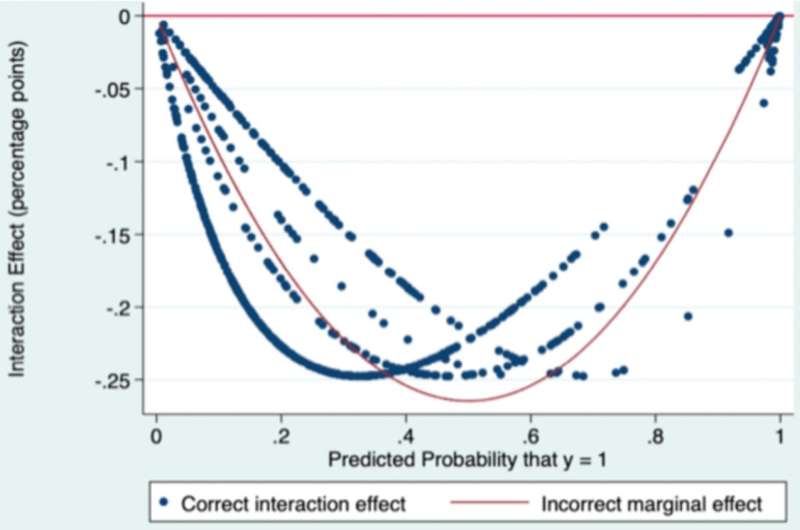This article has been reviewed according to Science X's editorial process and policies. Editors have highlighted the following attributes while ensuring the content's credibility:
fact-checked
proofread
New study finds electoral uncertainty threatens international investment at companies with government ties

In emerging countries, where the differences between political parties are considerable, elections often bring sweeping policy changes, even when the incumbents remain in power. This electoral uncertainty creates challenges for all businesses, and a new study in the Global Strategy Journal finds that—contrary to conventional belief—these challenges are particularly relevant for state-owned businesses.
Even companies with ties to their home government through indirect investments can find it particularly difficult to maintain their international interests during election years.
"Multinationals with indirect ownership are less likely to internationalize in an election year, and when they do, they implement more flexible strategies than fully private companies," says Rodrigo DeMello, an associate professor of management at Bentley University.
DeMello, and his co-authors Marina Gama and Oliver Bertrand of Fundação Getulio Vargas in Brazil, and Marie-Ann Betschinger of HEC Montréal, describe indirect ownership as institutional investment from entities like public banks or government-controlled pension funds. This type of indirect state investment exists in democracies all around the world, including Australia, Canada, France, and the United States. However, it creates pronounced vulnerabilities for companies based in countries with newer democracies.
"The role of the home government supporting its multinationals is well documented; however, multinationals from emerging countries face potential disruption of this support in election years," says Gama.
Indirect state ownership can help companies access subsidized finances, privileged information, and diplomatic networks. However, in election years, state-owned shareholders can use their influence at these companies to divert resources from international investments, or they can simply withdraw state favorship.
The authors examined 89 multinational companies in Brazil from 2000 to 2012 to see how three elections changed the international strategies for organizations with indirect state ownership.
State indirect ownership organizations are 20% less likely than private companies to expand abroad during election years. They are also almost 40% more likely to establish foreign service subsidiaries over manufacturing plants and 10% more likely to establish a wholly owned subsidiary as opposed to a jointly owned one.
"Multinational organizations with indirect state ownership are not only less likely to internationalize during elections, but also more likely to hedge on flexible investments across their borders," says Bertrand. "When they do invest, they want complete control over their investments."
For managers in developing democracies, the study shows that state ownership does not guarantee resource continuity and stresses the need to integrate political elections into their strategic planning. It offers insight to those in more developed democracies as well. Though the study included only multinationals in Brazil, the political volatility and extreme differences between competing parties' ideologies that the authors describe are on the rise in developed democracies.
More information: Rodrigo B. DeMello et al, The effect of political elections at home on the internationalization of state‐owned multinationals from emerging countries, Global Strategy Journal (2023). DOI: 10.1002/gsj.1489
Provided by Strategic Management Society





















